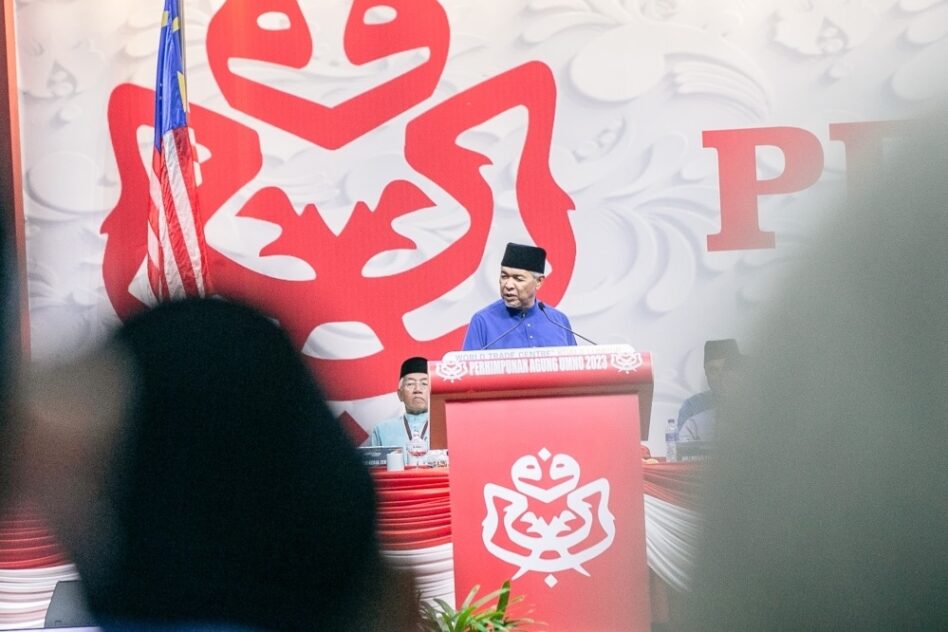By Sharina Ahmad
WAQF land or land endowments made by Muslims have vast potential for development as not enough people have thought about doing this. In Malaysia, more than 88% of waqf land, amounting to about 30,000ha, is left underutilised or idle.
If the potential of the waqf land is unlocked, it can help improve the socio-economic status of some Muslims, both owners who will get development profits and buyers who can get a discounted price for the property. It was reported in 2017 that there were more than 10,120ha of waqf land in the country that can be developed into commercial and residential projects.
Waqf is an endowment made by a Muslim, in the form of land or building, to a religious, educational or charitable cause. Bumiputera developers are developing waqf land and offering properties at 20% below market value to Muslims.
National House Buyers Association (HBA) honorary secretary-general Datuk Chang Kim Loong told FocusM that no one has explored the possibility of opening up a waqf for development for a long time. There is a great potential in the future for such developments, he said.
“We suggest that the relevant authorities help unlock the value since there is a high demand for land within certain urban areas. Some of the waqf lands are in high-value areas, facilitating profitable development.”
Land Professionals Society of Malaysia (Pertama) president Prof Dr Ismail Omar said the value of waqf land is limited by some factors. For one, banks are reluctant to offer development loans.
“We have to unlock the value to help provide affordable housing. This will help both Muslims and non-Muslims,” he said.
Other factors include legal and moral restrictions which may be made on waqf land.
From a legal point of view, HBA legal adviser Adriana Abu explained that the objective and underlying aim of waqf is very much different from commercial developmental goals.
“If the value of waqf land is to be unlocked, the purpose must not, and cannot, be for making a profit. This will be an oxymoron to the original aim of waqf land which is to be used for the benefit of the people. It is not for money-making or for enriching developers, religious authorities and especially politicians,” she told FocusM.
Adriana said it would be totally unacceptable if the waqf land is developed into hotels, luxury high-rise condominiums and shopping malls as these are buildings with little or no value in terms of benefiting people who do not have enough.
“In fact, these are developments which will lead to mungkar (wrongdoing) as we have seen with most of our so-called modern developments. The only benefit is monetary and it is limited to the developers, not for the benefit and greater good of the people.”
What will be more reasonable, Adriana opined, and which is more in keeping with the original aims of waqf land would be the construction of affordable homes for middle and bottom income earners or to gazette such lands (where there is no specific requirement made by the owner) for those purposes.
“But this must be undertaken in a very considered manner,” she said, adding it should only be done after exhausting all means of getting land for the construction of such affordable homes. Let us use waqf land for the original aims, she stressed.
Issues and challenges of developing waqf land
Will freeing up waqf land contribute to the property overhang? HBA’s Chang said most of the overhang was due to lack of emphasis on market studies related to less strategic locations and that it is timely to undertake the development of waqf land.
“In undertaking waqf land development, proper market research and feasibility study must be conducted to avoid an overhang. In 2013, the government undertook research on waqf land transformational studies where it collected data and identified ways to develop these lands.
“Priority must be given to the formulation of the Waqf Land Act. The government needs to also look into bridging and end-financing of the development for the developers, contractors, builders and ‘buyers’,” said Chang.
He noted that the completed waqf building (separate waqf can be made for land and building as well as for every component of the building) can be “sold” via lease and leased/rented to Muslims and non-Muslims.
Pertama’s Ismail said freeing up waqf land will help make houses more affordable and will not contribute to an overhang if proper feasibility studies have been made.
“Bear in mind that location is very important. Most of the waqf lands are in rural areas. The needy — both Muslim and non-Muslim — will benefit.”
He noted that commercial and residential waqf lands are different in location, size, value, zoning and other factors.
Nevertheless, the biggest issue is the wrong perception of waqf land by the people who are looking at the land in a religious context rather than their potential for economic development, said Ismail.
Chang, on the other hand, noted that since the waqf land is donated free of charge to the Islamic Representative Council (IRC), the total house price would be greatly reduced.
“We envisage and our aspiration is that a house currently costing RM300,000 be ‘sold’ or rather ‘let on long lease’ for half the price in a waqf land scheme, After all, isn’t it just the construction price and compliance costs that one has to bear? Of course, this is a subject for further discussion.
“What is happening now, is that the developers team up with IRCs to maximise profits. This is truly unacceptable and against the spirit of the waqf land concept,” said Chang.
Legal adviser Adriana said it would be a bad move if the government were to bulldoze through proposals for waqf land as not all of them can be used “willy nilly” because some have specific usage imposed by the owners.
“The government is not the owner of the waqf land. A trustee cannot be overzealous to unlock the land and build a hotel as the trustee wants just because a creative and greedy developer wants to do so. Who will benefit — definitely greedy developers, not the people.”
She felt that freeing waqf land will contribute to a property overhang.
“Yes, even now the government is hapless in dealing with developers. Why should we add to the problem by disturbing a scheme which is for the people’s benefit just to ‘help’ developers whose only interest is to get land with lower market value so they can build more white elephants that nobody can afford to purchase.”
Adriana stressed that a house built on waqf land cannot be sold as the land is given on trust to be administered for the benefit of the people and it is an act of charity by the landowner.
“Why is the government so foolish as to listen to a segment of society, that is developers with no understanding of the aim of waqf land?” — April 29, 2020








